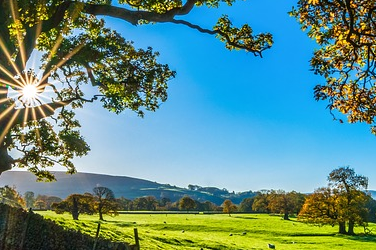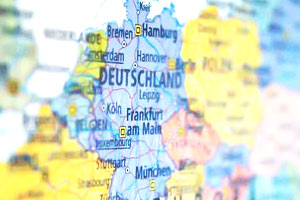Farm Education

Historically, becoming a farmer was simple. As soon as a child born on a farm began to walk, they would follow their parents around the farm and learn in a purely practical and hands on way as they grew up. These days however, post secondary education is becoming ever more important for farmers wishing to run their farms at a profit and sustain the business into the future.
Technology and the reality of competitive economies challenge people who run farms in a new way. Agriculture has become more knowledge intensive with rapid changes, new legislation, and EU directives making the management of a farm complex. As a result, different types of knowledge and skills are becoming essential for farming success.
Traditional Ways Outdated
A typical day for a farmer calls on many inherent and taught skills. They need to recognise when stock is sick, check prices, fix broken machinery, feed, plough, manage land, and do all of the paperwork while keeping an eye on their market place. As a general worldwide trend, farm work is expected to decline as more efficient farming practices mean more products can be produced from fewer farms. In Ireland, small family farms make up the majority of all farmland and there is danger that more of these farms will fail to thrive unless attention is paid to getting the most from the land and stock efficiently.
Farmers have an inborn understanding of the work that they perform in an environment that calls for a complexity of skills. However, farms are businesses and without the education to run a farm as a business entity, many farmers are struggling to exist. The modern farmer needs to keep detailed records on the health of their stock, crop rotation, land management, due income and outbound purchasing. A general understanding of electricity, mechanics, carpentry, engineering and natural ingenuity are essential for any farmer.
The Farm As a Business
Business management is an area where farmers need to have knowledge. Computer literacy is an essential skill required of farmers these days and they need to know how to apply technology, have awareness of environmental stewardship, understand global marketing, be able to develop a business plan, control finances, prepare budgets and maintain the every day running of the farm.
Farmer’s decisions are always challenging. Deciding on what crop to grow or what stock to invest in is a gamble. A mistake can mean a disaster a year down the line. It is becoming more difficult for farmers who have not gone beyond basic education to meet the challenges of modern farming.
Teagasc plays a role providing on-farm education supporting the agri-industry and sustaining rural life in Ireland. The importance of education off the farm is to be taken seriously in a dynamic food and agriculture sector. Farmers today should have education equivalent to other professional occupations.
It is considered that food and farming are pivotal to the Irish economy recovery leading to growth in the sector. Diversification is encouraged and many farms have changed to become producers of artisan cheeses and food products. Others have looked at their natural resources and started to offer farm holidays, equestrian activities, and farm restaurants.
Education
Most farmers starting a farm business or already running one know it is not possible to ignore education. To keep their operations in business now requires some kind of formal training. For farmer’s children intending to return to the farm there are plenty of valuable third level degrees that will support their hands on training. For existing farmers there is plenty of support and funding available to take practical, useful courses to improve their prospects.
Farmers are one group of people where the working day can be 24 hours during busy times like lambing and hay making so it is essential that educational courses fit around the lifestyle. Fortunately, with an internet connection, farmers can take advantage of the many relevant distance-learning courses supplied by further education colleges throughout the country. This means they can study from home at a time that suits them and without leaving the farm.
Business, Food Science, Horticulture, Marketing, Environmental Studies, Basic Accounting, and Agricultural Science are just some of the many subjects for farmers to study to enhance their own skills and improve their bottom line. Combined with the excellent on-farm education Teagasc provides, there is every hope that the agriculture sector in Ireland will grow and prosper in the years ahead. Like all professions, experience gained through the years is critical, but the essential tools of the trade such as simple business management knowledge and computer skills as a minimum are vital to the future of the agricultural sector.
View Agriculture and Horticulture courses on Findacourse.ie – Findacourse agriculture and Horticulture Course Listings





